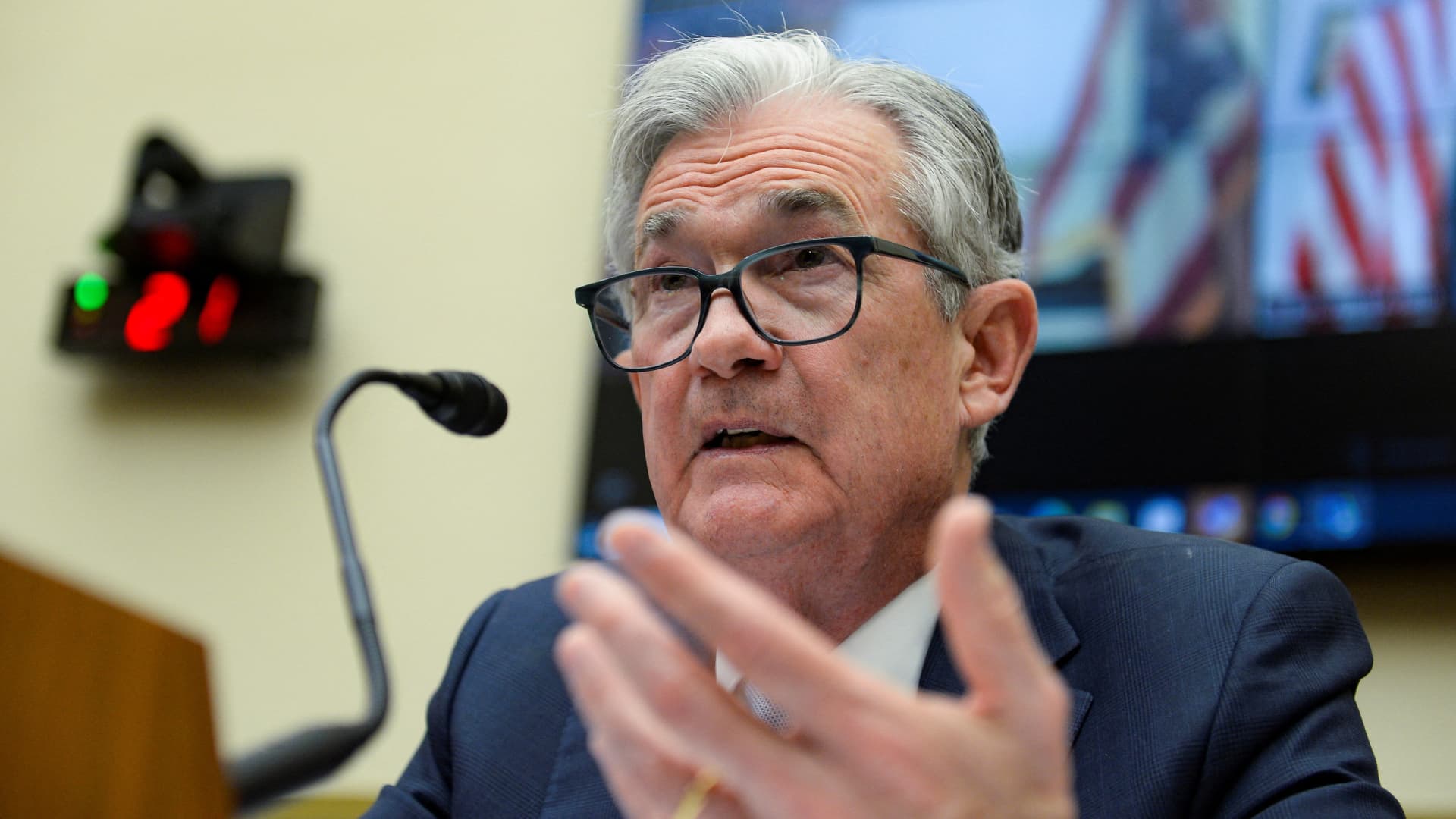
Federal Reserve Chairman Jerome Powell vowed Wednesday that policymakers would not allow inflation to take hold of the U.S. economy over the longer term.
“The risk is that because of the multiplicity of shocks you start to transition to a higher-inflation regime. Our job is literally to prevent that from happening, and we will prevent that from happening,” the central bank leader said. “We will not allow a transition from a low-inflation environment into a high-inflation environment.”
Speaking to a European Central Bank forum along with three of his global counterparts, Powell continued his tough talk on inflation running at its highest level in more than 40 years.
In the near term, the Fed has instituted multiple rate hikes to try to subdue the rapid price increases. But Powell said that it’s also important to arrest inflation expectations over the longer term, so that they don’t become entrenched and create a self-fulfilling cycle.
“There’s a clock running here, where we have inflation running now for more than a year,” he said. “It would be bad risk management to just assume those longer-term inflation expectations would remain anchored indefinitely in the face of persistent high inflation. So we’re not doing that.”
Since the Fed started raising rates in March, market indicators of inflation expectations have fallen considerably. A measure of the outlook over the next five years that compares inflation-indexed government bonds to standard Treasurys fell from nearly 3.6% in late-March to 2.73% this week.
However, other surveys show that consumers expect prices to continue to climb. One such measure, from the University of Michigan, helped pressure the Fed into raising its benchmark interest rate 0.75 percentage point at its meeting earlier this month.
The Fed now is charged with bringing down those expectations while not crashing the economy. Powell said he’s confident that will happen, though he acknowledged risks.
“We’re strong committed to using our tools to get inflation to come down. The way to do that is to slow down growth, ideally keeping it positive,” he said. “Is there a risk that would go too far? Certainly, there’s a risk. I wouldn’t agree that it’s the biggest risk to the economy. The bigger mistake to make … would be to fail to restore price stability.”




